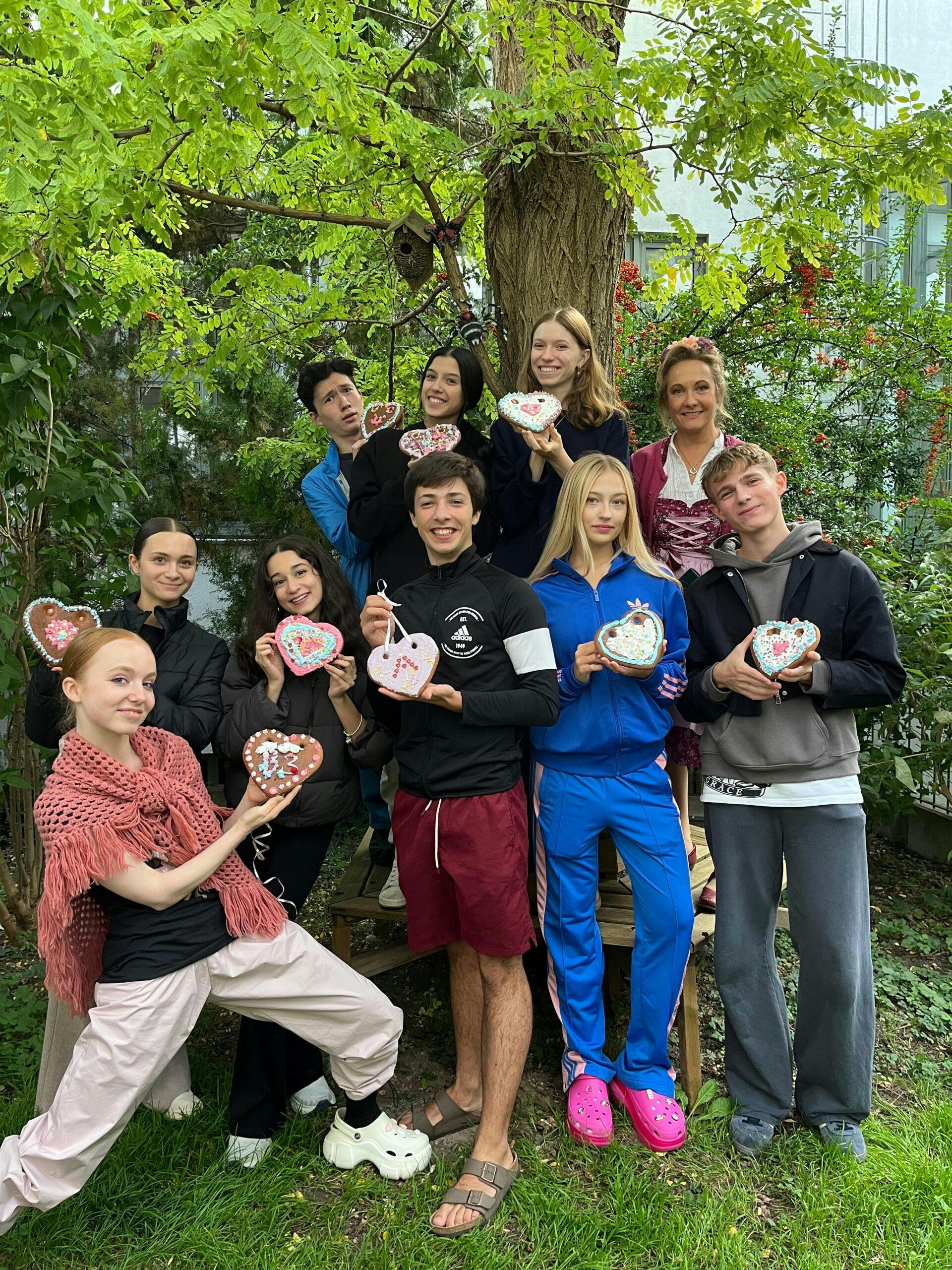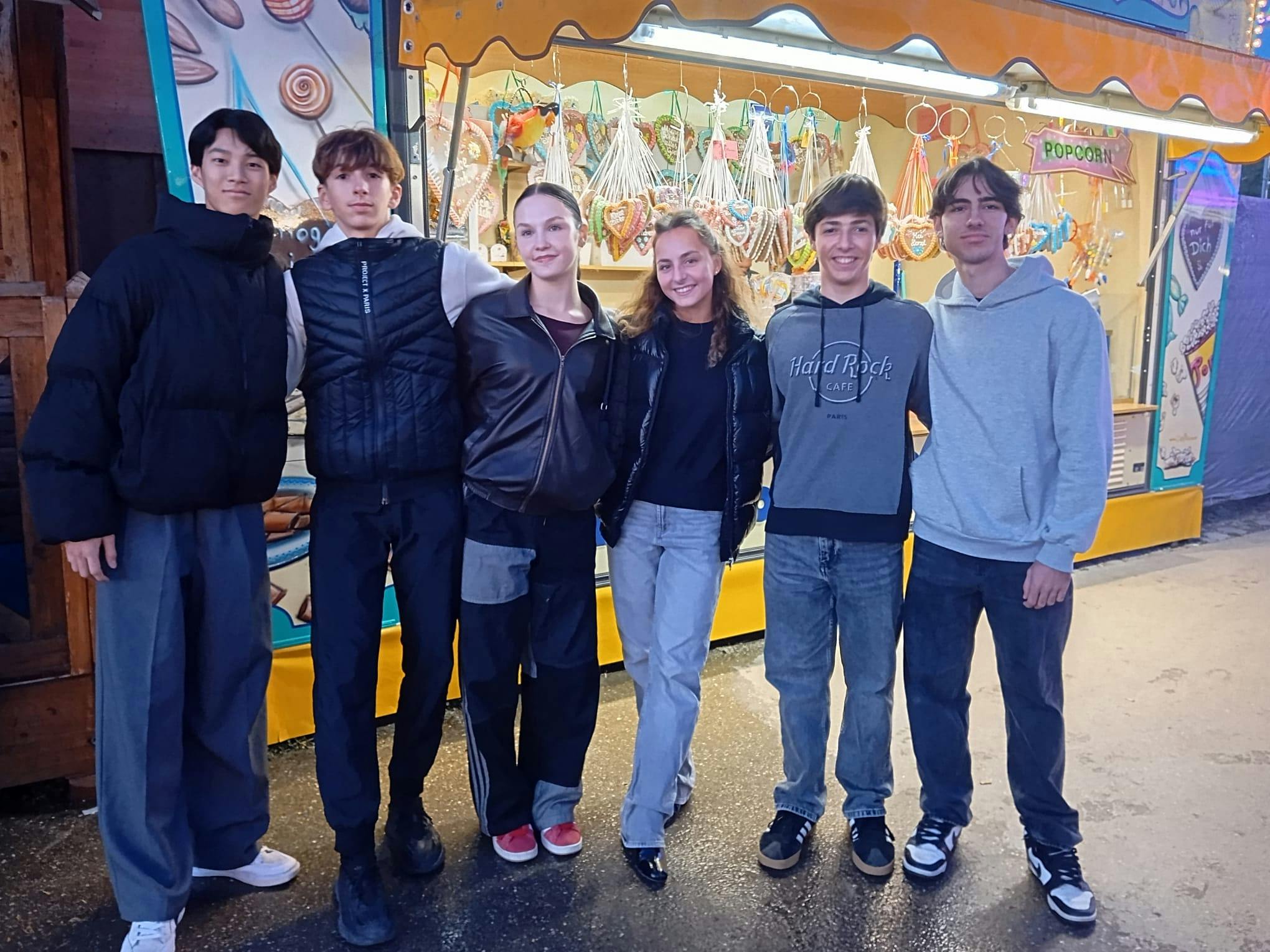Essay
Growing Up On and Off Stage: A Year in Review of the Pastoral Care Program at the Heinz Bosl Foundation
Dance. Rehearsals. Stage. Applause. That’s the image many people associate with the daily life of young dancers—especially when they are part of a renowned institution like the Heinz Bosl Foundation. But anyone who thinks our work takes place only in the ballet studio or on stage is mistaken. A significant part of our commitment happens behind the scenes—far from the audience and the spotlight, yet just as important for the young people’s development.

A Home for Young Dancers
In addition to the intensive dance training at the Ballet Academy of the University of Music and Performing Arts Munich, the Foundation’s residence on Herzogstraße is far more than just a place to sleep—it is a center of life, a retreat, and a space for pastoral care. Especially for the underage students of the Ballet Academy, the residence is an essential part of their everyday lives.
This is where our pastoral work begins—with heart, understanding, and a wide range of activities.
Viola Kleinfelder, Head of the Pastoral Care Program at the Foundation, brings her many years of experience working with young people into every detail of her guidance. Her goal: not only to train the young dancers technically, but to accompany them in their overall personal development.
“It’s important to me that the young people experience human, cultural, and historical moments during their training. I want them to take away more than just technique—memories, relationships, values,” says Kleinfelder.
And that is exactly what her annual program reflects.
A Year in the Residence: Culture, Community, and Responsibility
Autumn – Arriving, Understanding, and Taking Root
When the new school year begins in September, many young people arrive in Munich—often for the first time far away from home. At first, many know the city only as the home of the world’s largest folk festival: Oktoberfest.
A group visit to the Wiesn is therefore one of the first events on the calendar—educationally supervised, without alcohol, but full of cultural encounters. Trying on Dirndl and Lederhosen isn’t just for fun—it’s a way to connect with Bavarian traditions.
“Did you know that the position of the Dirndl bow shows your relationship status?” Little but meaningful details like this foster a sense of belonging and community.
Another important part of the autumn program are history sessions designed by Viola herself—low-threshold, often embedded in walks through neighborhoods such as Schwabing. She shows the students places of historical importance—such as memorials of resistance against the Nazi regime—giving them a sense of where they live and learn. These experiences build a personal connection to the city and make history tangible.
Winter – Celebrating Together and Navigating Everyday Life
As it gets colder outside, the residence becomes even cozier. The anticipation of Christmas starts early—with decorating, baking cookies, and the traditional “Secret Santa.” These rituals create a feeling of home that many of the students miss when they’re far from their families.
But serious topics are part of the program too: fire safety training, education about youth protection laws, and workshops on online violence prevention—run in cooperation with the criminal police. Because trust also grows through awareness and safety.
Spring – Shaping Together and Being Creative
With the first warm days, life at the residence moves outdoors: the garden is cared for, new flowers are planted, and there’s outdoor cooking and crafting. Game nights and creative activities with craft teachers—such as pottery, knitting, or beadwork—offer space for relaxation and connection.
A highlight of spring is the courtyard flea market: the students organize their own stalls, design posters, learn economic thinking, and build self-confidence through their own ideas. Here, the importance of participation becomes especially clear—a central value in Viola Kleinfelder’s pastoral work.
Summer – Relaxing, Being Outside, Recharging
Summer brings not only sunshine but also an intense exam period at the Ballet Academy. That’s why it’s all the more important to create balance: more picnics, evenings outdoors, physical activity, and informal leisure time help the young people regain energy and reduce stress.
Whether it’s an outing to the English Garden, a relaxed barbecue in the courtyard, or simply spending time together in the shade of the trees—the summer belongs to balance and joy. No rehearsals here—just laughter, release, and life.

Pastoral Care with Heart and Conviction
What unites all these activities is the goal of giving young people a stable foundation for life—emotionally, socially, and culturally.
“I need this time with the young people so that they can develop trust—so that, in the event of a crisis, I can respond well and professionally,” says Viola Kleinfelder.
One thing is clear: those who are expected to perform at their peak as dancers also need an environment beyond the stage that strengthens, protects, and inspires them. The residence of the Heinz Bosl Foundation is exactly such a place. And when the students look back after three years full of training, sweat, and applause—but also full of laughter, the smell of baking, long conversations, and shared celebrations—they take away far more than just a dance career.
They take with them memories—and a piece of home.











